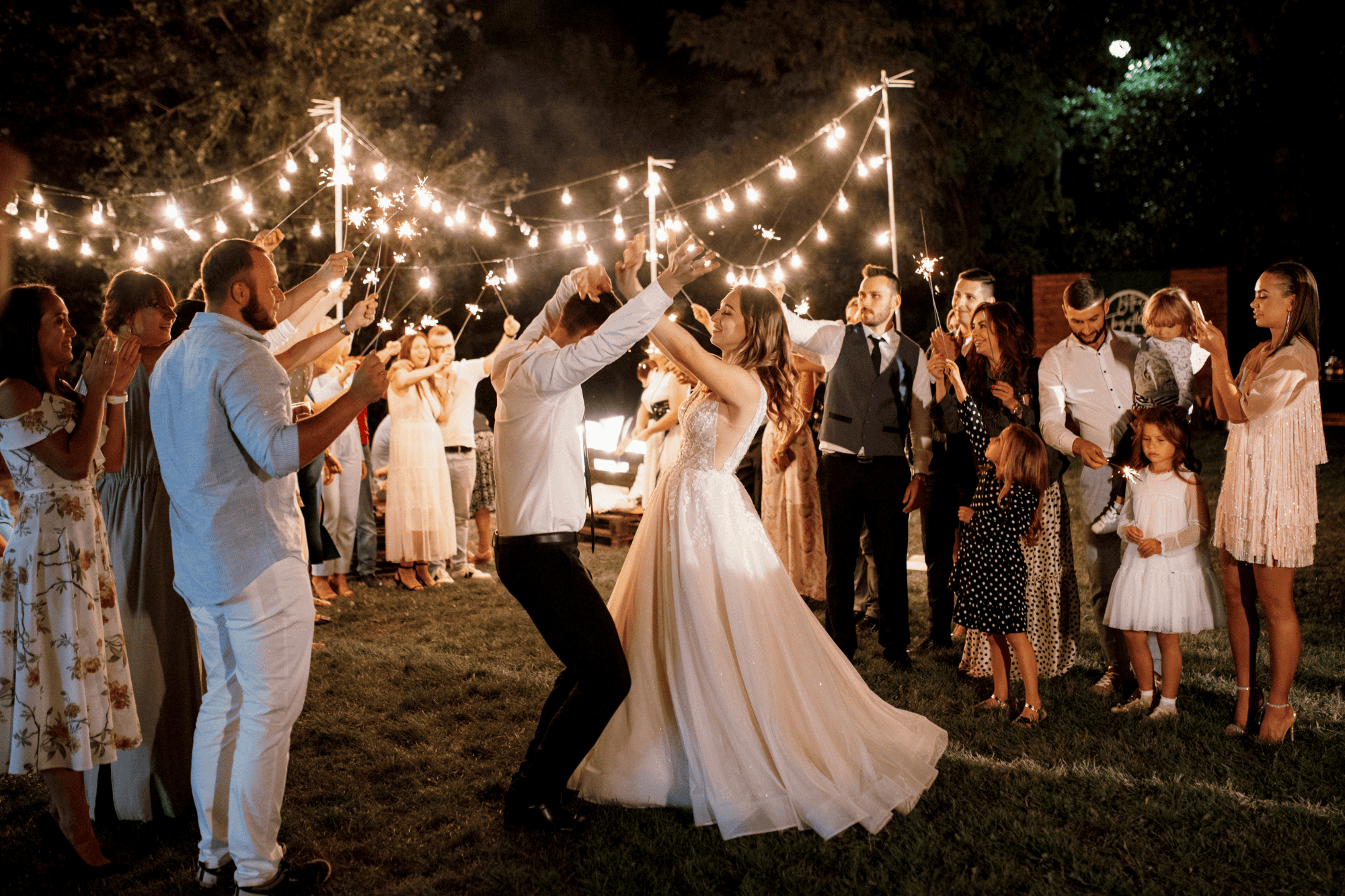Planning a wedding can be one of the most exciting yet stressful times in a couple’s life.
Among the many decisions that need to be made, figuring out who pays for what is often one of the most challenging.
Traditionally, certain people were expected to chip in towards the bride and groom’s wedding expenses.
However, with changing times and customs, the lines have blurred, and it’s not always clear who is responsible for what costs at a wedding.
Let’s get straight to the point
Weddings traditionally involved specific financial responsibilities for the bride’s and groom’s families, but modern practices have shifted these roles.
Nowadays, many couples contribute to or cover the entire cost of their wedding themselves, reflecting changes in societal norms and financial independence.
The key to managing wedding expenses is open communication and flexibility, ensuring that costs are shared in a way that works for everyone involved.
Establishing a budget and discussing contributions with families can help prevent misunderstandings and financial strain, allowing the focus to remain on the celebration itself.
Traditional Wedding Expenses Breakdown
Historically, the burden of wedding expenses fell largely on the bride’s family.
This tradition has roots in various cultural and historical norms, where the bride’s family was expected to provide a dowry and host the wedding as a way to welcome the groom into their family.
But as we know, these customs are no longer as rigid, and many modern couples are opting for different ways to divide up the costs.
Bride’s Family Responsibilities
Traditionally, the bride’s family was responsible for the wedding ceremony and reception costs.
This includes the venue, catering, music, decorations, and even the flowers. They also typically covered the wedding gown, bridesmaid dresses, and accessories.
Other responsibilities that fell to the bride’s family included:
- Wedding Invitations and postage
- Wedding Planner fees
- Wedding Favors for guests
- Transportation for the bridal party
In addition to these expenses, the bride’s family often hosted an engagement party to bring both families together in celebration.
Groom’s Family Responsibilities
The groom’s family traditionally had fewer financial obligations but still played a significant role. They were responsible for:
- The rehearsal dinner, including food, drinks, and decorations
- Corsages and boutonnieres for the wedding party
- The officiant’s fee and marriage license
- The honeymoon
Moreover, the groom’s family might also cover the cost of the groom’s attire and gifts for the groomsmen.
The Groom’s Responsibilities
In addition to what his family covered, the groom traditionally handled the cost of:
- The engagement ring
- The wedding bands
- Gifts for the bride (such as a necklace or bracelet to be worn on the wedding day)
- Personal grooming and attire
Modern Approaches to Wedding Budgets
These days, the traditional divisions of wedding expenses have become more fluid.
Many couples are getting married later in life, often after establishing careers, which means they are more financially independent and able to contribute significantly to their own wedding costs.
Couples Chipping In
Today, more than half of couples contribute to or even pay entirely for their wedding themselves.
This shift reflects changes in societal norms, where both the bride and groom are equally responsible for funding the wedding.
This trend is partly due to the rising cost of weddings and the desire for couples to have control over their day.
Many modern couples use tools or even just a pen and paper to plan out their wedding expenses and determine how costs should be divided.
This approach allows for a more flexible and personalised budget, taking into account each family’s financial situation.
Collaborative Budget Planning
It’s increasingly common for couples to have an open discussion with their families about wedding expenses.
We urge that couples decide together with their families who are willing and able to endure various costs when the time comes to establish what kind of dividing up works for your specific financial and familial scenario.
This collaborative approach can prevent misunderstandings and ensure that everyone feels comfortable with the arrangements.
Before getting together with the people, it can be useful to create a rough budget estimate in an Excel or Google document.
That way, the person whose card chip you put won’t have any bearing on the initial decisions you make as you plan the wedding of your dreams.
Who Pays for the Wedding Dress?
One of the most iconic aspects of any wedding is the bride’s dress.
Traditionally, the bride’s family would cover the cost of the wedding dress, as well as any related accessories like the veil, shoes, and jewellery.
However, in modern times, many brides choose to pay for their own dresses, especially if they are contributing to the overall wedding budget.
If the bride’s family is covering the dress cost, it’s often seen as their gift to the bride.
However, some families might split the cost, or the bride herself might decide to purchase her own gown, especially if she has a specific dress in mind that might be over budget.
What About the Wedding Bands?
When it comes to wedding bands, the traditional expectation was that the groom would purchase both his and the bride’s rings.
Today, this responsibility is often shared between the couple, with some opting to split the cost or purchase each other’s bands as a mutual gesture of love and commitment.
Establishing a Fair and Reasonable Wedding Budget
Given the significant expenses associated with weddings, it’s crucial to establish a budget that everyone is comfortable with.
Remember, these guidelines may look like regulations, but they’re flexible enough for you to follow or break as necessary, depending on your personal financial situation. There’s no need to stick strictly to tradition if it doesn’t make sense for your situation.
Conclusion
Who pays for what at a wedding isn’t always made clear, and that’s okay. The key to a successful wedding budget is communication and flexibility.
Use a budget calculator or just a pen and paper to figure out your wedding costs, and don’t be afraid to diverge from traditional roles if it suits your situation better.
Ultimately, the goal is to have a beautiful, memorable wedding without causing financial strain on anyone involved.
Whether the couple pays for the wedding themselves, or if families contribute, the most important thing is that everyone is comfortable with the arrangement and that the day reflects the love and commitment of the couple.
Frequently Asked Questions
What is a reasonable budget for a wedding?
As a general rule, plan to budget at least $100 per guest. If you’re planning a wedding on a budget, one of the easiest ways to reduce costs is to invite fewer people and have a more intimate celebration.
How much does floral cost for a wedding?
What is the groom’s family supposed to pay for?
The groom is traditionally expected to pay for the marriage license and officiant’s fees, and buy the bouquet for his “date” (the bride), as well as her engagement and wedding rings and a gift; he should also purchase boutonnieres and gifts for his groomsmen.
Do the bride’s parents still pay for the wedding?
The bride’s family pays for the wedding venue and vendors, and most products and services related to the day. Stationery – save-the-dates, invitations, ceremony programs, escort cards, etc.



